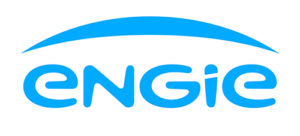ENGIE Joins STEP Demo Project to Demonstrate How sCO2 Technology Can Create Clean, Low-Cost Power
June 18, 2020
Des Plaines, IL
 GTI is pleased to announce that ENGIE, a French multinational electric and gas company, is joining in the Supercritical Transformational Electric Power (STEP) project known as STEP Demo. It is a unique demonstration of next-generation, higher-efficiency, lower-cost electric power plants enabled by supercritical carbon dioxide (sCO2) technology.
GTI is pleased to announce that ENGIE, a French multinational electric and gas company, is joining in the Supercritical Transformational Electric Power (STEP) project known as STEP Demo. It is a unique demonstration of next-generation, higher-efficiency, lower-cost electric power plants enabled by supercritical carbon dioxide (sCO2) technology.
With an increasing global demand for energy, electricity production is expected to grow faster than any other use of energy, employing diverse resources with regional variations. The next generation of transformational power processes will utilize technologies that enable clean, low-carbon power production that offers versatility, scalability, responsiveness, and lower costs.
In Europe and the U.S., electricity generated from gas—whether it is natural gas, green gas from biogas, or synthetic methane from renewable hydrogen and CO2—is complementary to the increasing share of electricity generated from renewables, and will continue to play an important role in the transition to carbon neutrality.
A four-party program to prove supercritical carbon dioxide (sCO2) efficiency
With funding from the U.S. Department of Energy/National Energy Technology Laboratory (U.S. DOE/NETL) and numerous other industry partners, GTI is leading a project team in collaboration with Southwest Research Institute (SwRI) and GE Research. A 10 Megawatt-electric supercritical CO2 pilot plant has been designed, building construction has been completed, and equipment installation is underway on the SwRI campus in San Antonio, TX, with operational start-up anticipated next year.
The STEP Demo pilot plant will be used to advance the sCO2 Brayton power cycle and demonstrate performance over a range of operating conditions. Using sCO2 as a working fluid for power cycles, instead of steam/water, will result in lower capital costs, as well as reduced plant size and footprint, and has the potential to revolutionize future power generation.
Supercritical CO2 cycles offer substantial cost, emissions, and operational benefits and can operate using a wide range of heat sources, including fossil fuel (natural gas), renewables (concentrated solar, biomass, geothermal), next-generation nuclear, industrial waste heat recovery, and shipboard propulsion.
By combining higher cycle efficiencies with lower cost and highly compact turbomachinery, the STEP Demo project is a significant step toward commercialization of sCO2-based power generation and is informing the performance, operability, and scale-up to more efficient commercial power plants.
ENGIE joins the demonstration to move the technology from the lab to the field
ENGIE offers turnkey solutions in low-carbon energy services. With capabilities in electricity generation and distribution, natural gas, nuclear, renewable energy, and energy transition, the company leverages a power generation portfolio composed of largely low-carbon and renewable resources.
“ENGIE supports its customers in their carbon neutral energy transition and clean power generation is an important part of this. Not only is the efficiency of power generation important, the need for flexibility is also growing.
The ability of power plants to ramp up and down quickly is critical to complement the intermittent character of the rising share of renewable power generation. sCO2 Brayton cycle systems—particularly with natural or green gas power generation applications—have the potential to increase both efficiency and flexibility, and this project will help us better understand its potential and challenges,” says Dr. Jan Mertens, Chief Science Officer at ENGIE.
“We are pleased to have our first European partner on this project,” notes Michael Rutkowski, GTI Senior Vice President, Research and Technology Development. “International collaboration is critically important to successfully address the worldwide need to reduce greenhouse gas emissions. Transformational sCO2-based power cycles offer dramatically improved efficiencies, economics, and environmental performance. They can play an important role in the transition to low-carbon energy.”
ENGIE has joined the current industry, academic, and state government partners in this open Joint Industry Program to help guide the test activities and move the technology from the lab to the field. Developing and maturing the technology at pilot scale will spur the development of designs, materials, components, and systems necessary for larger-scale sCO2 power conversion systems.
Post project, STEP Demo will remain a testbed for future sCO2-cycle-based power development. The plant design is flexible and can be reconfigured to accommodate ongoing testing and technology optimization. The project teams welcomes additional partners with interest in sCO2 power cycle technology.
About National Energy Technology Laboratory (NETL)
The National Energy Technology Laboratory (NETL) is the U.S. Department of Energy’s (DOE) only Government-Owned, Government-Operated (GOGO) Laboratory. NETL focuses on the discovery, development, and deployment of technology solutions to enhance the nation’s energy foundation and protect the environment for future generations. These advanced technologies enable fossil fuels to produce the clean, reliable, and affordable energy needed to support increased domestic manufacturing, improve infrastructure, enhance global competitiveness, revitalize the workforce, and free the U.S. from dependence on foreign oil.
About GTI
GTI is a leading nonprofit research, development and training organization that has been addressing global energy and environmental challenges by developing technology-based solutions for consumers, industry, and government for more than 80 years. GTI leads the STEP Demo project as the prime contractor with the U.S. Department of Energy/National Energy Technology Laboratory (DOE/NETL).
About SwRI
Southwest Research Institute is a premier independent, nonprofit research and development organization using multidisciplinary services to provide solutions to some of the world’s most challenging scientific and engineering problems. Headquartered in San Antonio, Texas, SwRI occupies more than 1,500 acres, providing over 2.3 million square feet of laboratories, test facilities, workshops, and offices for approximately 3,000 employees who perform contract work for government and industry clients.
About GE Research
GE Research is GE’s innovation powerhouse where research meets reality. It is a world-class team of 1,000+ scientific, engineering and marketing minds (600+ Ph. Ds), working at the intersection of physics and markets, physical and digital technologies, and across a broad set of industries to deliver world-changing innovations and capabilities for their customers.
About ENGIE
ENGIE is a global reference in low-carbon energy and services. In response to the urgency of climate change, the group’s ambition is to become the world leader in the zero carbon transition "as a service" for their customers, in particular global companies and local authorities. Engie relies on key activities (renewable energy, gas, services) to offer competitive turnkey solutions. With 170,000 employees, plus customers, partners and stakeholders, they are a community of Imaginative Builders, committed every day to more harmonious progress. Turnover in 2019: 60.1 billion Euros. The Group is listed on the Paris and Brussels stock exchanges (ENGI) and is represented in the main financial indices (CAC 40, DJ Euro Stoxx 50, Euronext 100, FTSE Eurotop 100, MSCI Europe) and non-financial indices (DJSI World, DJSI Europe and Euronext Vigeo Eiris - World 120, Eurozone 120, Europe 120, France 20, CAC 40 Governance).
Become a project partner
This open project is welcoming new partners from around the world. OEMs, engineering companies, and power plant owner/operators are invited to join to gain a better understanding of how sCO2 technology can improve high-efficiency power generation.

For more information, contact Markus Lesemann directly.

